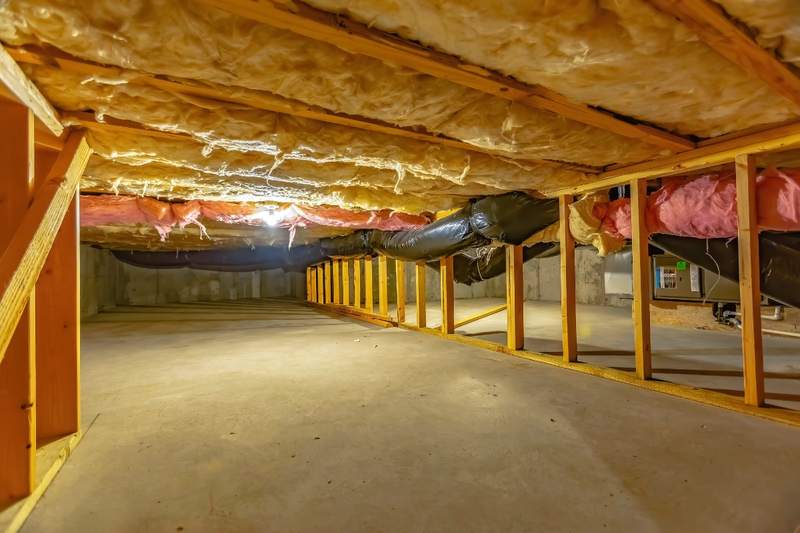
If you’re buying a home, you likely need a mortgage, and most types of mortgages have minimum credit score and down payment requirements. If your credit score is on the lower end, or you don’t have much saved up, it can be difficult to qualify for a conventional loan.
That’s where FHA loans come in. An FHA loan is insured by the Federal Housing Administration, which is part of the Department of Housing and Urban Development. FHA insurance protects mortgage lenders against losses on loans that meet its requirements, which include a maximum loan amount, generous minimums for credit scores, and low down payment requirements.
How Do FHA Loans Work?
Private lenders offer loans that meet FHA guidelines to eligible homebuyers in exchange for the government agreeing to cover their losses if the borrower defaults. This arrangement encourages lenders to approve mortgages for borrowers with lower credit scores and smaller down payments.
FHA loan guidelines allow for:
- Down payments as low as 3.5% of the purchase price.
- Credit scores as low as 500.
- Low closing costs.
FHA loans have government limits on how much you can borrow, based on the home’s location. Like the limits for conforming conventional loans, FHA loan limits are set by the Federal Housing Finance Agency. FHA loans require borrowers to pay an upfront mortgage insurance fee, as well as an ongoing annual mortgage insurance fee that’s added to the monthly payment.
FHA Loan Limits for 2023
For 2023, the FHFA conforming loan limit for a single-family home in most of the United States is $472,030. In high-cost areas, the limit is $1,089,300. In Alaska, Hawaii, Guam, and the U.S. Virgin Islands, the limit is $1,633,950.
HUD has an online tool that allows users to search FHA mortgage limits in specific areas.
FHA Loan Requirements
To get an FHA loan, you must meet specific criteria regarding your finances, the property itself, the size of your down payment, and more. You’ll want to weigh the pros and cons of FHA loans before deciding if it’s the right mortgage for you.
Minimum credit score
Lenders use your credit score as a way to gauge how well you manage your debts and how reliable a borrower you are. While conventional loans require you to build credit to get a score of at least 620 to receive a loan, you can get an FHA loan as long as your credit score is at least 500.
Minimum down payment
If your credit score is 580 or higher, then you can get an FHA loan with a down payment as low as 3.5%. If your credit score is lower than 580, then you’ll need to make a down payment of at least 10%. There are programs that can help you afford a down payment, or help you out if you have trouble keeping up with your loan payments.
Maximum debt-to-income ratio
Your debt-to-income ratio is another figure that lenders use to measure whether you’ll be able to keep up with your monthly payments. It represents how much of your income is required to pay your current debts. You can calculate your DTI ratio by adding up your monthly debt payments, dividing by your gross monthly income, and multiplying by 100 to get a percentage.
The maximum DTI ratio to qualify for an FHA loan is 57%. However, lenders may set their own maximums, which can be stricter.
Mortgage insurance
If you take out an FHA loan, then you also have to pay for mortgage insurance. Mortgage insurance protects your lender if you’re unable to repay your loan. The cost of mortgage insurance is added to your monthly payment, so you need to be prepared to pay it.
In 2023, the government reduced the annual mortgage insurance premium that FHA loan borrowers have to pay. The premium was reduced from 0.85% to 0.55% for most homebuyers, which is expected to save borrowers an average of $800 per year.
Property requirements
An FHA appraisal is needed to make sure the property meets HUD requirements that ensure the home is safe to live in. FHA appraisals look for health risks, including toxic substances, hazardous substances, mold, and lead paint. The home also must meet all HUD building codes and standards, and have fewer than four units.
Residence requirements
To get an FHA loan, the borrower needs to live in the home as their primary residence. HUD defines a primary or principal residence as the home you live in for most of the calendar year.
FHA Loan Types
The FHA offers several types of loans.
Fixed-rate mortgage
With a fixed-rate mortgage, your interest rate is fixed for the entire repayment term of your loan. That means the amount you pay each month for principal and interest remains the same from the first payment to the last.
Adjustable-rate mortgage
With an adjustable-rate mortgage, your interest rate will adjust at certain intervals based on market conditions. If interest rates increase, so will your monthly payment. If rates decrease, your payment will go down.
Typically, an ARM starts with a lower interest rate than a fixed-rate mortgage, and the rate doesn’t change for a set time. Once that introductory period is up, the interest rate adjusts, usually once a year.
Reverse mortgage
Reverse mortgages are for older homeowners who want to convert their home equity into income. Instead of making monthly payments to chip away at your principal loan balance, a reverse mortgage pays you money, and your loan balance increases. The loan must be repaid when the borrower no longer lives in the home — usually by selling it.
Graduated payment mortgage
Graduated payment mortgages are for borrowers who expect their income to increase significantly in the future. This type of loan comes with low closing costs and starts off with a low monthly payment that increases over time.
One risk of this type of loan is that you may have periods with negative amortization, where you owe more on your loan than you borrowed to buy the home, or you owe more than the home is worth.
Growing equity mortgage
Growing equity mortgages are similar to graduated payment mortgages. The difference is that growing equity mortgages don’t allow negative amortization.
Energy-efficient mortgage
FHA energy-efficient mortgages help homebuyers make energy-efficient home improvements. Cost-effective home improvements are financed through the mortgage in exchange for a larger balance. Energy-efficient mortgages allow you to borrow the lesser of:
- The cost of the improvements.
- Or the lesser of 5% of:
- The property’s adjusted value.
- 115% of the median area price for a single-family home.
- 150% of the national conforming loan limit set by the FHFA.
Manufactured home mortgage
The FHA backs loans of up to $92,904 to buy manufactured homes with a lot. This type of loan typically comes with a term of 20 years. If you’re just buying the lot, then the maximum loan term might be 15 years.
To be eligible for a manufactured home loan, you’ll need to live in it as your primary residence.
Condominium loan
FHA loans can be used to buy condominiums that meet FHA eligibility requirements and comply with local and federal housing laws. You can look for FHA-approved condo projects by location with a search tool on the FHA’s website.
Home improvement and refurbishment loan
If you’re looking to buy a fixer-upper, then an FHA 203(k) loan might be a good fit for you. Eligible home improvements include:
- Structural alterations or reconstruction.
- Modernization.
- Elimination of hazards.
- Appearance improvements.
- Plumbing and septic system fixes.
- Roof and gutter replacement.
- Floor replacement.
- Landscaping.
- Disability access.
- Energy efficiency.
The home improvements must cost a minimum of $5,000, and the value of the property must fall within the FHA limit.
FAQ
Here are answers to some common questions about FHA loans.











